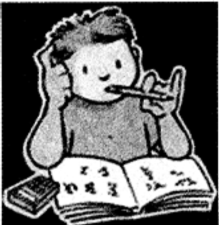题目内容
Break your time into a few parts if youhave more than an hour' s work, and giveyourself (2)a break after an hour. On the otherhand, (3) you should be able to work at leasthalf an hour at a time without stopping.
Don't put it off until the last minute. If youput off doing your homework, you will have iton your mind, and you won't enjoy your freetime so much. If you put it off until the end of aweek or until right before a test, you will havetoo much to do. A little each night, enough tokeep up with what is happening each day inschool, will take the fear out of tests and keep you on top of it.

1.Always do your homework before you get too tired. (改为同义句 )
________ you get too tired, you should _______ doing your homework.
B. an idea
C. a rest
D. a moment
B. Don't wait till very late in the evening to do your homework.
C. Eat something to keep yourself not hungry.
D. Have a short break after working for more than two hours.
(1) He has a good _______ to beat his dog.
(2)1f you____ the rule, the teacher will call your parents.
2.C
3.你应该能够每次不间断地学习至少半个小时。
4.D
5.(1)mind have a good mind to do是固定用法,其意思是……”。
(2) break break 在此是动词,是,不遵守。

| |||||||||||||||||||||||||||||||||
| 阅读理解 | |||
| |||
| 1. How old is Xiaoxin? | |||
| A. Four. B. Five. C. Nine D. Ten. | |||
| 2. What's Mickey's QQ number? | |||
| A. 63527198. B. 62967198. C. 62967341. D. 15139748856. | |||
| 3. Who are in China now? | |||
| A. Xiaoxin and Mickey B. Xiaoxin and Panda C. Xiaoxin and Ne Zha D. Mickey and Panda | |||
| 4. The panda is from _________. | |||
| A. Japan B. China C. England D. the USA | |||
| 5. Panda means(意思是) "_________". | |||
| A. 蜡笔小新 B. 米老鼠 C. 大熊猫 |


